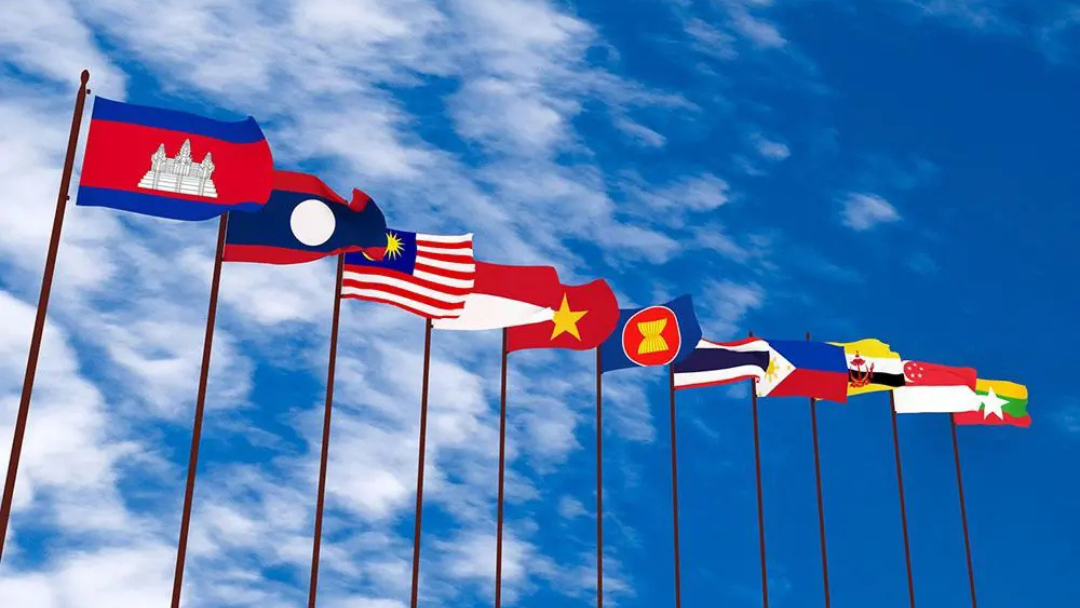THE United States has once again distanced itself from global climate action.
President Donald Trump’s executive order to withdraw from the Paris Climate Agreement for the second time has sent shockwaves through the international community, placing ASEAN at a pivotal crossroads. For Malaysia and its South-East Asian neighbours, this isn’t just distant political theatre – it’s a clarion call for decisive regional leadership in addressing mounting climate challenges.
With Malaysia assuming the ASEAN chairmanship in 2025, the stakes couldn’t be higher.
South-East Asia, home to over 650 million people and some of the world’s most vulnerable coastlines, stands at the forefront of climate change.
Malaysia alone, with over 4,600km of threatened coastline, faces significant risks.
From Jakarta’s sinking neighbourhoods to Vietnam’s vanishing Mekong Delta, the region is already experiencing the devastating impacts of global warming.
The US withdrawal undermines not only global climate action but also threatens to destabilise the foundations of regional prosperity and security.
Yet, within this crisis lies an unprecedented opportunity for ASEAN to emerge as a global leader in climate action.
The economic imperative
The global transition to a green economy is accelerating – with or without American participation.
China, ASEAN’s largest trading partner, has already surpassed its renewable energy targets by six years and dominates global solar and wind energy markets.
Meanwhile, the European Union is raising climate ambitions with stringent environmental standards for trade.
For ASEAN economies, this presents both challenges and opportunities.
The region must navigate a complex web of trade relationships while accelerating its green transition.
Malaysian businesses, in particular, face a critical choice: adapt to increasingly stringent environmental standards or risk falling behind in the green economy revolution.
The numbers are compelling.
The Asian Development Bank estimates ASEAN requires US$3.1 trillion in green investments by 2030 to meet its climate commitments.
With US withdrawal threatening the Green Climate Fund, ASEAN must forge new partnerships and innovative financing mechanisms.
Promising models, such as Singapore’s green bond market and Malaysia’s Islamic green financing (green sukuk) initiatives, can lead the way.
Beyond economics: The strategic dimension
The US withdrawal leaves a power vacuum in global climate diplomacy – one that ASEAN is uniquely positioned to fill. The region’s strategic location, economic dynamism, and diplomatic expertise make it a natural bridge-builder between East and West.
Strengthening climate cooperation through frameworks like the ASEAN power grid (APG) and Trans-ASEAN gas pipeline projects can demonstrate how regional collaboration addresses global challenges.
Furthermore, climate action provides ASEAN with an opportunity to enhance its collective voice on the world stage.
As major powers vie for influence, a unified ASEAN stance on climate change could improve negotiating positions on broader strategic issues.
Indonesia’s Just Energy Transition Partnership exemplifies how climate diplomacy can attract international investment while advancing national interests.
Malaysia’s catalytic role
As one of ASEAN’s most developed economies, Malaysia must act as a catalyst in regional transformation.
With expertise in renewable energy – particularly solar power, sustainable palm oil, and biofuels – Malaysia is well-positioned to lead by example.
The success of Malaysia’s Large Scale Solar (LSS) programme underscores how ambitious climate action can create jobs, attract investments, and enhance energy security.
Companies like Petroliam Nasional Bhd are already diversifying into renewable energy, while innovative green financing products, such as Cenergi’s green sukuk framework, pave the way for sustainable growth. These initiatives demonstrate that climate action and economic progress are not mutually exclusive.
The path forward: A regional response
ASEAN’s response to the US withdrawal must be bold and coordinated.
Key actions include:
> Accelerating the APG
This infrastructure backbone can transform South-East Asia into a green energy powerhouse, creating economies of scale that make clean energy more affordable. While the grid delivers kilowatt-hours, renewable energy certificates (RECs) ensure the delivery of certified green energy, enhancing accountability and transparency in the region’s clean energy transition.
Vertically Integrated Utilities should focus on network connectivity, while the private sector drives renewable energy projects with creative financing solutions.
> Establishing a regional climate finance facility
Pooling resources and expertise to fund green projects is essential. Malaysia’s Islamic finance sector could play a pivotal role in structuring syariah-compliant green investments.
> Strengthening regional climate governance
Empowering the ASEAN Centre for Energy to synchronise member states’ energy policies will ensure effective and coordinated transitions. ASEAN must establish an Association of Issuing Bodies to oversee the issuance and trade of RECs, ensuring representation from all stakeholders.
This would create a vibrant market for renewable energy, fostering confidence among investors and stakeholders alike.
Recent collaborations, like the Malaysia-Singapore memorandum of understanding on carbon trading under Article 6.2 of the Paris Agreement, signify growing regional cooperation.
> Building resilience from within
The US withdrawal highlights a crucial lesson: ASEAN must rely on its collective strengths to secure its climate future.
Investments in climate-resilient infrastructure, biodiversity protection, and homegrown clean technologies are imperative.
Malaysia’s sustainable forest management practices and Singapore’s urban sustainability innovations offer valuable lessons for regional cooperation.
A call to action
Incremental steps are no longer enough.
As the United States steps back, ASEAN must step forward.
The region has the resources, expertise, and diplomatic finesse to lead the global climate fight, but political will and public support are crucial.
For Malaysia, this means engaging with climate policy at every level – from supporting local renewable energy initiatives to demanding accountability from leaders.
For ASEAN, it means turning climate challenges into opportunities for integration and sustainable development.
The US withdrawal from the Paris Agreement is a setback for global climate action, but it need not derail ASEAN’s progress.
By working together, the region can build a resilient, sustainable future that safeguards both the environment and prosperity. As ASEAN chair, Malaysia must lead the way.
Nirinder Singh Johl is the founder and CEO of Asia Carbonx Change Plt. He was formerly the managing director of TNBX, a subsidiary of TNB. The views expressed here are the writer’s own.
This article was originally published in The Star on the 24th of January 2025. You can visit the article here.



